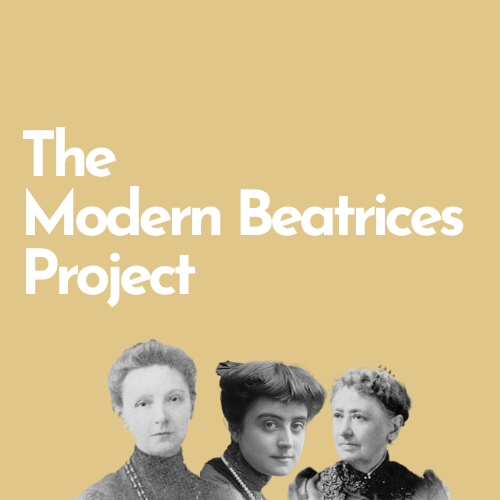All began with reading.
By the end of the 18th century, it had become customary for women from the aristocracy and upper bourgeoisie to read the Divine Comedy. The encounter of young female readers with Dante's poem was promoted by conduct manuals and educational literature of the time as an indispensable tool for a complete and enlightened intellectual education.
However, there was a fundamental difference.
While men saw Dante as a tool to mold women into traditional roles, women writers exalted his transformative power, stimulating intellectual autonomy and national identity. Similarly, Vertua Gentile, Jolanda, and others encouraged "the intelligent and knowledgeable lady" to include the Commedia among the canonical and patriotic books to be read "to meditate, to strengthen the faculty of understanding, to broaden the horizon of ideas, to increase the power of feeling, to ascend, carried by the spirit of the great, up high, towards the highest ideals."
"The Divine Comedy by Dante Alighieri are books that a young girl can read with pleasure and profit for herself, and which she should indeed keep as jewels in her small library," wrote Luisa Amalia Paladini in her Manuale per le giovinette Italiane (Manual for Young Italian Women, 1851).
In the English-speaking world, the Divine Comedy reached a wide female audience thanks to simplified translations and adaptations found in anthologies, biographies, and literary guides. Magazines dedicated to women, such as La Belle Assemblée, The Girl's Own Paper, The Ladies Cabinet of Fashion, and The Woman's Herald helped to spread knowledge of Dante's work through reviews and dedicated articles.
Forms of Reading
Reading Aloud.
Within the domestic walls, reading the Divine Comedy aloud was a common practice in families, where mothers and daughters, guided by fathers and husbands, gathered to share the emotion of poetry. Oral recitation exalted the musicality of the language and brought the imagination to life, creating a unique and evocative atmosphere: a moment of family togetherness that contributed not only to cultural enrichment but also to the transmission of the moral and religious values inherent in the verses of the Supreme Poet.
Solitary readers.
For many, reading the Divine Comedy was an intimate and solitary experience. Women noted the passages that struck them, reflected on the deeper meanings, and created an inner dialogue with the poet, as documented by diaries and notebooks, correspondence, and autobiographies. Diaries offer the temporal and spatial coordinates, situating the act of reading at a precise moment in the reader's life as well as in the history of the book's publication (and translation).
Reading and sharing: from correspondence to literary salons.
The reading experience was not isolated but intertwined with social life. Letters communicated the act of reading, bringing it into the public sphere of sociality, where the reader's affective and intellectual, recreational and serious experiences were shared and compared with other like-minded individuals. In literary salons, women discussed their impressions animatedly, comparing their interpretations and building collective knowledge. Queen Margherita of Savoy, an avid reader and collector, used to invite esteemed academics such as Giambattista Villani, Giosuè Carducci, and Luigi Pietrobono to discuss Dantean issues, and she established a Lectura Dantis hosted every Thursday at the Quirinale."
